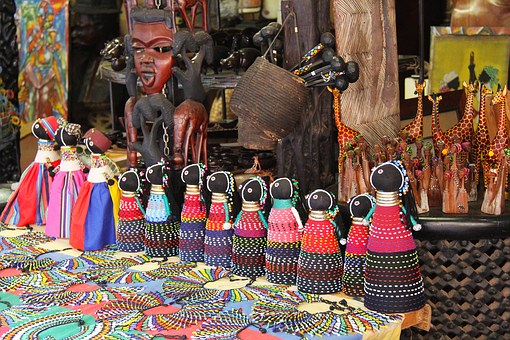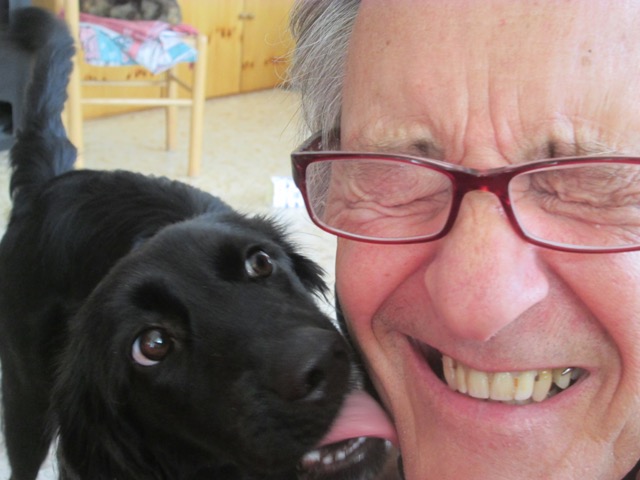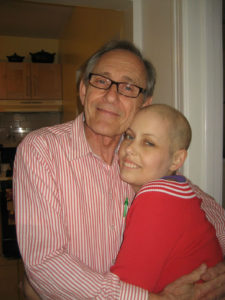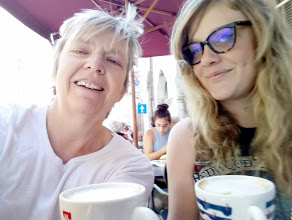Our life’s journey starts with the moment of birth, but probably with the moment of conception or even before when we adhere to the respective beliefs. When it actually starts is not so important, but the events and experiences it is filled with are weaving our life story to a more or less complex net of moments and our response to them.
The impact of childhood
In the first years of life we are almost entirely dependent on somebody who cares for us, feeds us and teaches us what to think and to say and how to behave in our special environment. Growing up we slowly liberate ourselves from this dependance, hopefully. From the very first moments of our existence we experience the world with our senses. Our psychology forms accordingly. Who had good experiences in early life normally grows up more easily into an adult human being than those of us who were exposed to physical or emotional hardship or even intentional malevolence. But it is not always so. The question arises: Why do some people, who have suffered a lot, have so much difficulty in life and even destroy it and the life of others, while others who had experienced similar situations grow up and become wise and altruistic?
Despite the validity of the law of cause and effect, the answers are not so blatantly easy. Apart from the genetic material and the psychological fields of our ancestry which we bring into the world, there seem to be many other factors in play which people have tried to figure out for a long time. The question: What is LIFE and what makes it meaningful? What is our predisposition, what are our unconscious orientations and our conscious influences?
Typologies
The idea of looking for similarities and collect them into typologies is equally ancient, but only in the last few centuries, typologies have been studied more in depth. They provide a map where you can find the similarities and differences of people and make some good prediction for the thoughts and behaviours of those who belong to a determinate category.
They exist, if you like it or not
I know, some people will protest now, even vehemently, because they don’t like the idea of humans being categorized, because they believe in the absolute individuality of every single human on earth. Well, this is also true, but partial, as everything we talk about in our quest for truth and wisdom. We all are individual souls in individual bodies, but it is also true that you can make good distinctions and find a certain number of sufficiently different “boxes” where you can put yourself in and those around you, with a certain probability of getting it right.
Examples
I give you an example: Many years I did an experimental course of the Enneagram. For several years we came together, 10 days every time, hundreds of interested people, and by a variety of exercises we were encouraged to find out ourselves to which type we belong. When we then met in the subgroup of people who identified with the same type as you, the surprise was huge: What everyone of us thought to be a specific trait of our own personality revealed to be exactly the same among all of us. Good-bye my belief in the individuality of myself! There were people who behaved and felt exactly like myself! Wow!
Another example are the levels of personal development: As a child we think and behave different than in adult life. I think there is common agreement here. But how is that different? And did you think and believe the same things when you were 20, 40 or 60? Probably not. In my life I have observed so many changes in what I thought about life, about myself and about others, about society, politicians, doctors. The list is endless. There are people who never change their mind – and also that is an indicator for the level in which they live their lives in. We are growing through many levels, if our development is healthy. A good source to learn about that is Spiral Dynamics, and even better Integral Theory which includes Developmental Psychology.
Our life experience is impersonal
We still might think that is is just us who have the fortune – or misfortune – to change our attitude to life and to the world. But it is definitely not. We grow up in a predictable way, nothing really special about every single one of us – while we are totally special in HOW we grow up inside ourselves, in HOW we express our type in the world, how we act now and in the future and how we see and integrate our past.
Our personal life experience is rich in its actual expression, but it is totally impersonal as category of experience. Everybody experiences the same things in life, childhood, growing up, pain and frustration, sexuality, bonding, interests in something, joy and sadness, illness and death. We add our personal flavour to all that, we live these things in different settings and with different “colors”, but the experiences themselves are profoundly impersonal in the sense that they are the ingredients of human life, the consequence of our sensory equipment, of our ability to think and to desire, our innate urge to live the life we are given.
We are actors on the stage of LIFE
It really helps when you are aware that your personal drama has nothing really to do with you as an individual, but that it is playing out in your body, mind and spirit, as you are a player in the big game of life and you have to play that special role on the stage, where you are one of the innumerable actors.




 But the cancer continued its cruel route, her years or even months seemed to be very limited. In spring Mark and I went to Chicago to be with her, to lend a hand for taking care of her. Now the effect of the cancer and the aggressive treatments and medications were blatantly visible. It was heartbreaking to see her body deform and her regressing into a little girl so often during these days. She had been such a vigorous, positive and courageous woman before!
But the cancer continued its cruel route, her years or even months seemed to be very limited. In spring Mark and I went to Chicago to be with her, to lend a hand for taking care of her. Now the effect of the cancer and the aggressive treatments and medications were blatantly visible. It was heartbreaking to see her body deform and her regressing into a little girl so often during these days. She had been such a vigorous, positive and courageous woman before! Mark was about to fly back to Chicago a few weeks later. In the morning of his departure from Rome he got the notice that Lilian had died the night before. I can only imagine what that meant for him. At the funeral he met his daughter Claire after a long time and he was really happy about that. They had found a new way of relating and Mark hoped that their relationship would develop into something beautiful from then on. But it didn’t happen. Claire told me why, when she came to see me in July. Mark had passed shortly before and they didn’t have the chance to reconnect in love and friendship. The day of his passing we had scheduled a skype call with Claire, Mark had been very happy about that, but he died a few hours before the appointment.
Mark was about to fly back to Chicago a few weeks later. In the morning of his departure from Rome he got the notice that Lilian had died the night before. I can only imagine what that meant for him. At the funeral he met his daughter Claire after a long time and he was really happy about that. They had found a new way of relating and Mark hoped that their relationship would develop into something beautiful from then on. But it didn’t happen. Claire told me why, when she came to see me in July. Mark had passed shortly before and they didn’t have the chance to reconnect in love and friendship. The day of his passing we had scheduled a skype call with Claire, Mark had been very happy about that, but he died a few hours before the appointment.